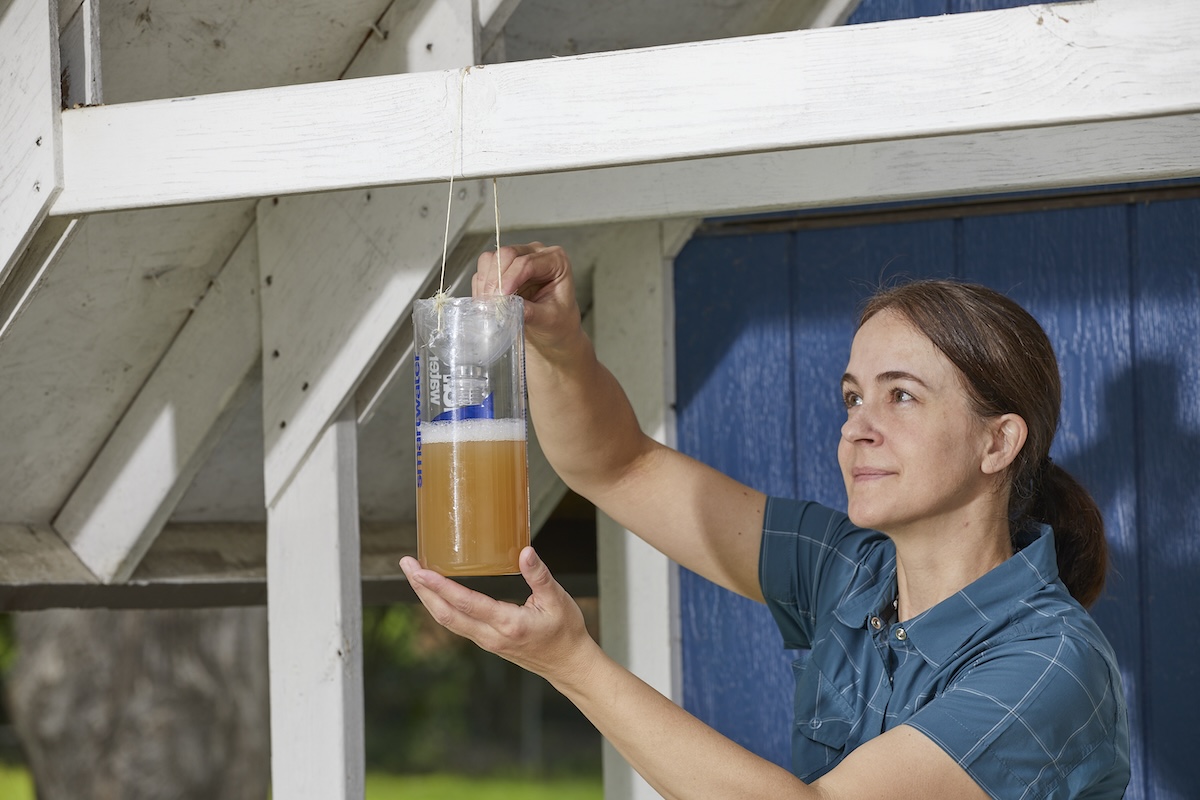

We may earn revenue from the products available on this page and participate in affiliate programs. Learn More ›
Plenty of bug sprays out there are designed to get rid of wasps, but you’ll be using some pretty powerful chemicals to do so. Unless you’re dealing with an established wasp nest, you can skip those harsh pesticides and instead use something you probably already have in your kitchen pantry: vinegar.
The strong acidity of vinegar makes it an effective natural wasp repellent that’s a safer and more environmentally friendly alternative to spray pesticides. Not only is vinegar a natural active ingredient, but it’s also more selective than other homemade pest killers as the sour scent of vinegar attracts wasps, but not bees. Here’s how to get rid of wasps with vinegar.
Tools & Materials
Bobvila.com may earn a commission from purchases made through these links.
Project Overview
Working Time: 1 hour
Total Time: 1 hour
Skill Level: Beginner
Estimated Cost: $10 to $15
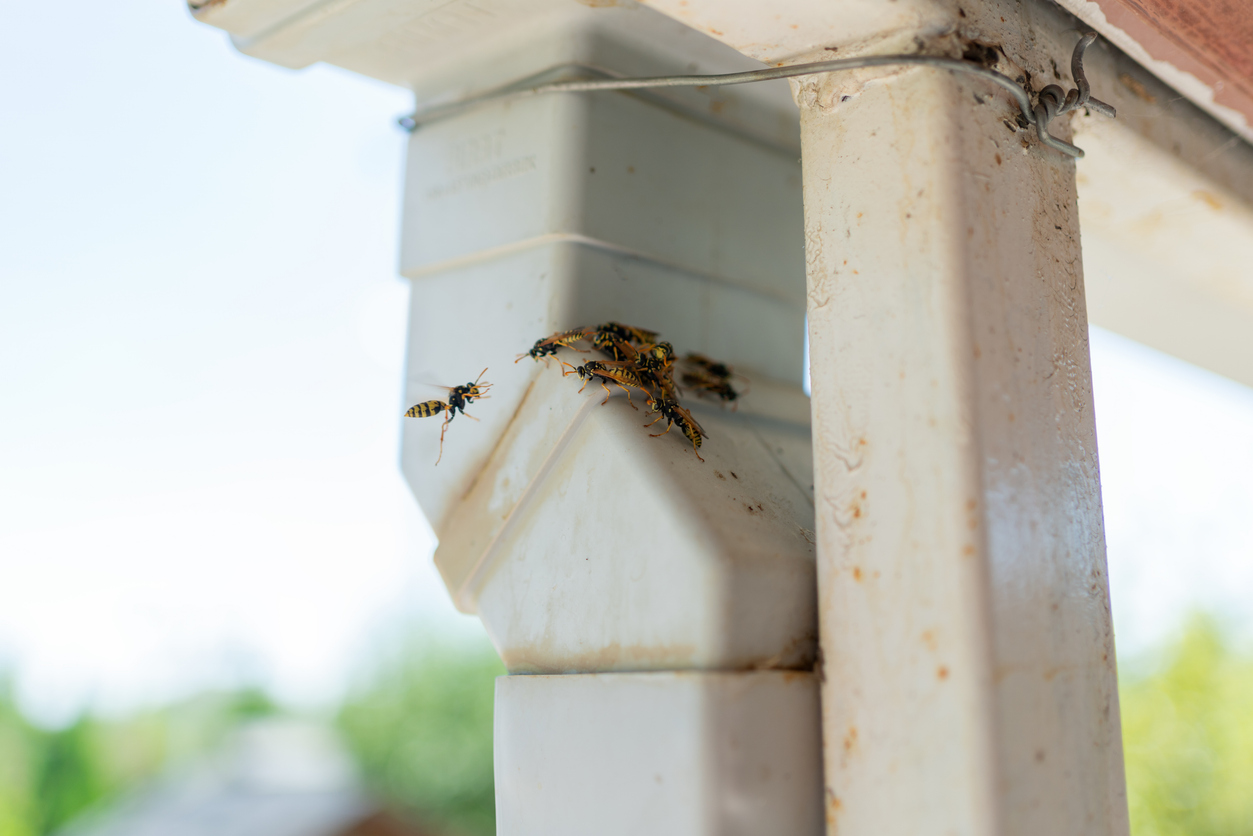
Before You Begin
A vinegar-based homemade wasp repellent works best for deterring wasps looking for places to nest. With that in mind, it’s best to start your wasp prevention efforts in the spring when the queens are looking for a place to build a new nest. However, if they’ve already established their nests, vinegar isn’t going to solve the problem. To remove a wasp nest, you’ll need to employ more drastic measures, or even call in a professional to handle the problem.
How to Use Apple Cider Vinegar to Trap Wasps
Step 1: Put on protective clothing.
Any time you face off against wasps, you run the risk of getting stung. Shield yourself from wasps’ painful stingers by donning a pair of heavy pants and a long-sleeved shirt. Vinegar may be safer than some of the commercial wasp killers out there, but it’s not without its health hazards. Since vinegar is highly acidic, it can cause burns that could permanently damage your eyes should it splash in that direction. With that in mind, wear eye protection when applying any vinegar-based wasp spray.
Step 2: Make a wasp trap.
Constructing a simple vinegar trap is an effective solution for killing wasps naturally and a cheaper alternative to store-bought wasp traps. Use a narrow-neck 2-liter plastic soda bottle for your trap. With a utility knife, cut off the top of the soda bottle just below where it begins to taper. Invert the top half of the soda bottle and place it inside the lower half, then seal the two pieces together using shipping tape or duct tape.
Step 3: Mix an apple cider vinegar-based wasp solution.
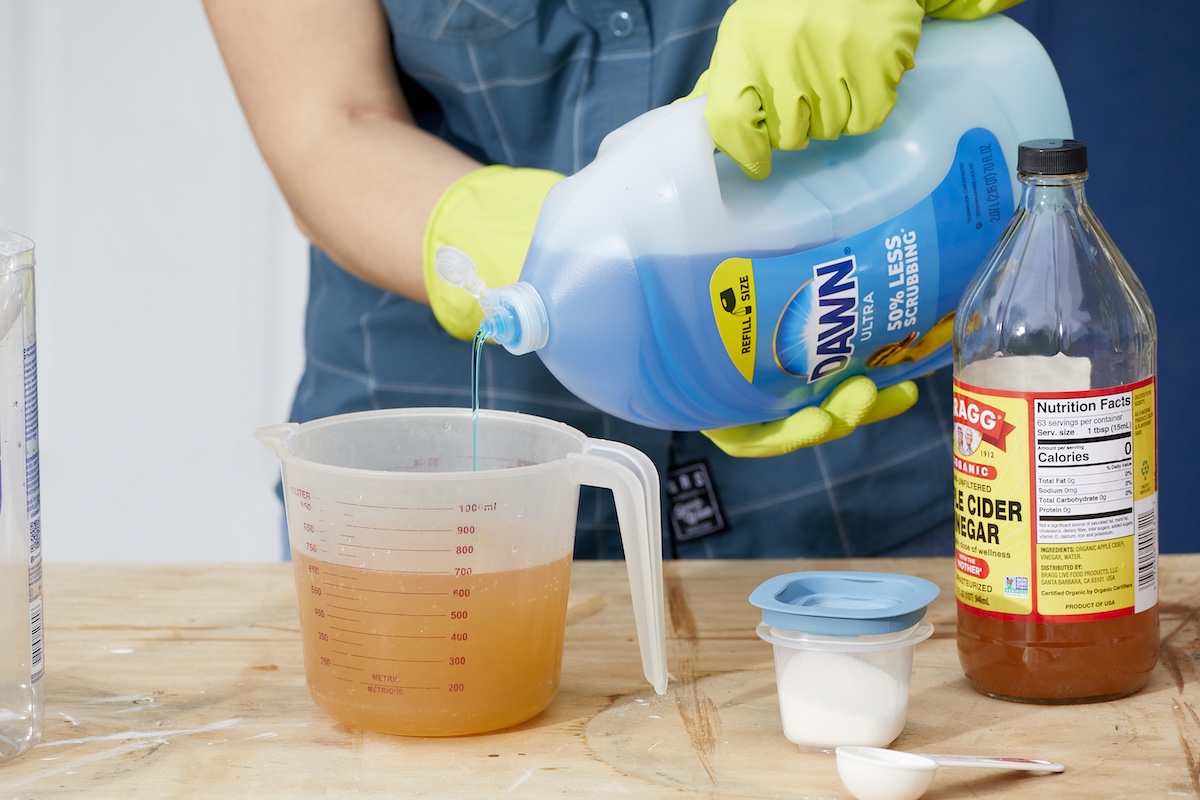
In a bowl, mix equal parts apple cider vinegar and water. Add a few drops of dish soap and a little sugar. The sweetness of the apple cider and sugar will attract wasps. The viscous dish soap will trap them once they come into contact with the liquid; the soap will also dissolve the wasps’ exoskeletons and kill them.
Step 4: Load the trap.
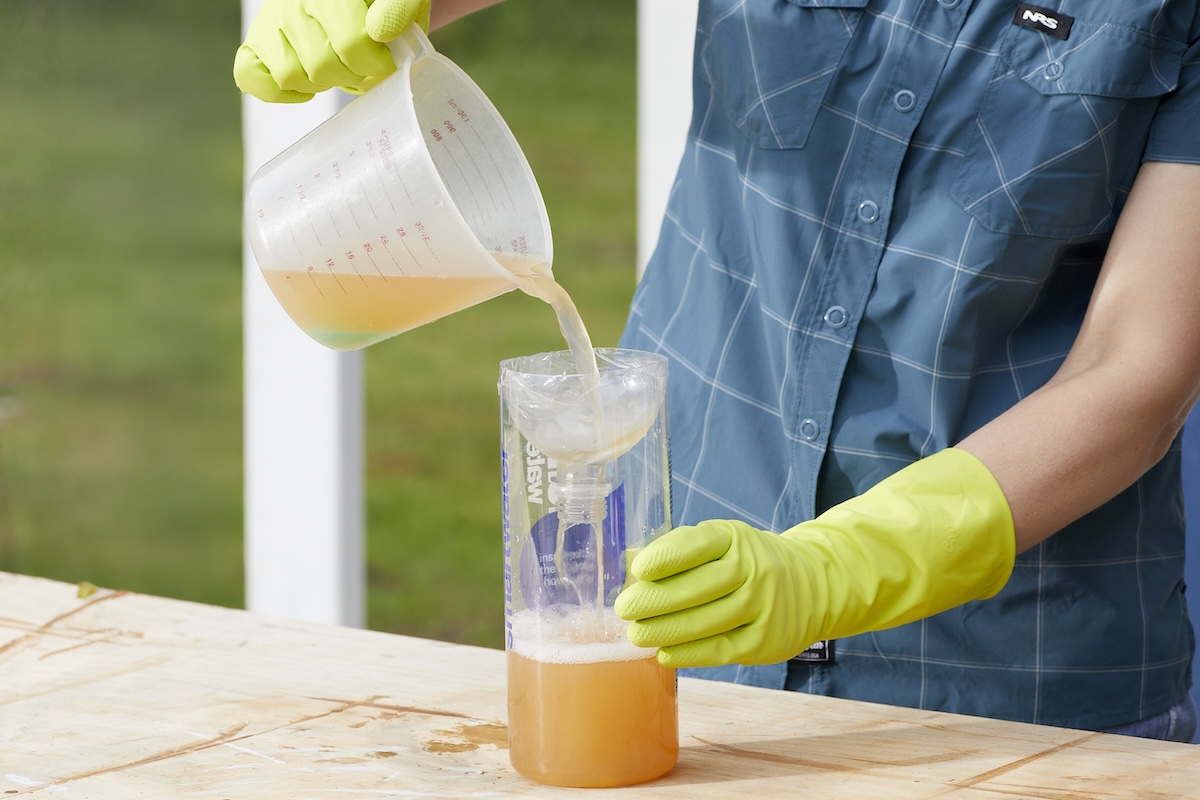
Using the inverted lid on the trap as a funnel, fill the lower half of the trap with the natural wasp-killing solution. Make sure to leave a 1-inch gap between the opening and the liquid to allow for the wasps to enter the trap.
Step 5: Hang the trap and check it periodically.
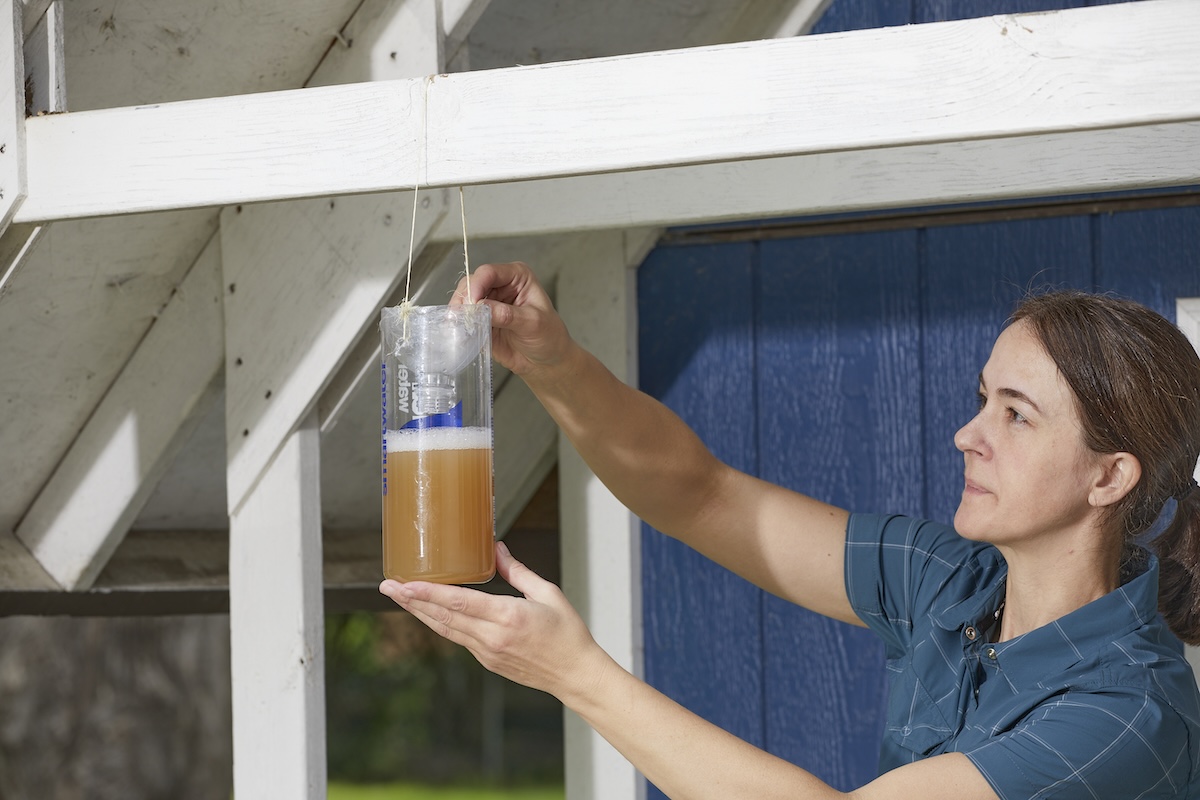
Place wasp traps in locations that are 30 feet or more from outdoor living areas to avoid drawing the flying insects to people. You can set the traps on a level surface, or hang them from a tree by punching two small holes at the top of the trap and threading string or wire through them. Check the trap every few days to refill it with fresh solution (and remove dead insects).
How to Repel Wasps With Vinegar
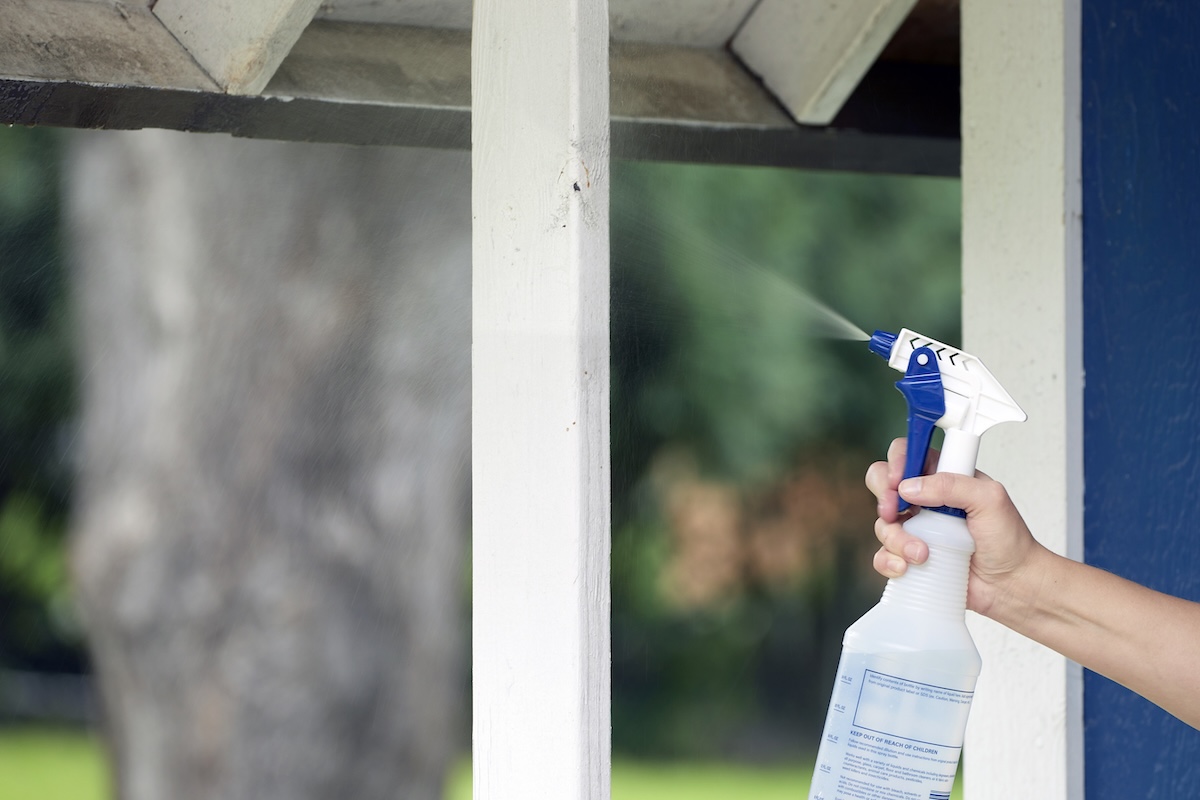
For a natural wasp deterrent that will keep yellow jackets from becoming a problem around your home in the first place, associate certified entomologist David Price says another simple vinegar-based solution is an effective wasp repellent.
“Wasps do not like the smell of vinegar, so spraying a mix of equal parts water and either white or apple cider vinegar around your home’s property and outdoor living area can keep wasps at bay,” says Price, who is director of technical services at Mosquito Joe, an outdoor pest control services with offices around the country.
Time your treatments for the evening or early in the morning when wasps are least active and there’s less of a threat of being stung.
Spray the natural wasp deterrent around areas that are popular nesting sites for wasps, including outdoor furniture, grills, eaves, and under covered porches. It’s also a good idea to treat entrances to your homes, including doors and windows, to prevent wasps from getting into the house. While the spray won’t kill wasps, the acetic smell of the white vinegar will repel them.
While this type of spray works well as a natural yellow jacket repellent, Price clarifies that it should not be used as kill-on-contact spray. “It’s important to know that vinegar does not kill wasps, so you should never spray this mixture directly onto a wasp’s nest or an area with wasps, as that will only anger the insects and may cause them to attack,” he says.
And since wasps release a pheromone that serves as a distress call that draws other wasps in the area to you, spraying one could cause them to swarm.
Final Thoughts
A homemade vinegar-based pest spray or trap is a great way to prevent wasps from nesting around your home. But remember, if you’re dealing with an established nest, a vinegar spray or trap isn’t going to solve the problem. “The idea of the vinegar solution is to just prevent wasps from lingering in the yard and building a nest,” Price says.
If you’re trying to take out a nest, you’ll need to use a chemical-based wasp killer designed specifically for wasp nests, or hire a professional pest removal service. “It’s time to call in professionals when dealing with a wasp nest situation that is beyond your expertise, or when the issue poses too great of a risk to the safety of yourself or your property,” he says.


